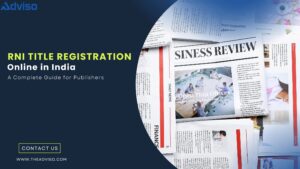Insurance Marketing Firm Regulations
The insurance marketing firm regulations were released by IRDAI i.e. Insurance Regulatory and Development Authority of India, aiming to streamline the registration and operation of Insurance Marketing Firms (IMFs). The insurance industry attracts stringent compliances to stay transparent and legitimate, preserving the interest of stakeholders as well as policyholders. These regulations create a holistic framework that simplifies the daily operations of insurers, agents, and intermediaries. From good corporate governance and financial stability to a robust operational environment, these regulations play a vital role in enhancing the performance and credibility of IMFs. Let’s take a closer look at various insurance marketing firm regulations that influence the IMF’s functionality and efficacy in one way or another.
What is an Insurance Marketing Firm (IMF)?
An Insurance Marketing Firm (IMF) refers to an IRDAI-licensed organization that caters to various endevours with the distribution of insurance and financial products being their main objective. They can offer a slew of financial and insurance products, such as general, life, health, and general insurance policies. IMFs are allowed to operate in as many as three districts as per IRDAI.
Check out our stories: 7 Steps To Get Insurance Broker License in India
Unique Features of IMFs
- Open Architecture: IMFs can partner with as many as two life, two general, and two health insurance firms. Notably, they can also team up with Export Credit Guarantee Corporation Ltd. (ECGC) and Agriculture Insurance Company of India Ltd. (AIC) to distribute specific offerings, reinforcing a versatile service portfolio.
- Diverse Offerings: IMFs are permitted to distribute an array of financial products helmed by the apex authorities like RBI, SEBI, and PFRDA.
- Localized Operation: Firm with IMF registration cannot go beyond district-level operation. Though it seems a limitation, it ensures focused and personalized service delivery.
Delving into Insurance Marketing Firm Regulations
The insurance marketing firm regulations create a robust framework that harmonizes every aspect of operations, including documents, registration, record-keeping, agent’s duties, claim processing, etc. Here is the breakdown of registration-based norms:
- NOC Requirement: Before registering with the Registrar of Companies (ROC), applicants must apply for NOC from IRDAI. The presence of an NOC is paramount for securing the ROC’s approval.
- Registration Timeline: From the date of incorporation, the applicant has a one-year timeline for securing the IMF registration.
- Principal Officer: A Principal Officer (PO) must abide by the IRDAI-based qualification norms before joining the IMF. Also, he/she must have exam certification to qualify for the position of PO.
Essential Record-Keeping Practices for Insurers
Record-keeping is the building block of good corporate governance and organizational success. IRDAI has mandated every insurer to document key processes and operations in their entirety, ensuring amplified transparency. A principal office, the one mentioned in the charter document, is the place where all documents should be kept and maintained. Some of the mandatory dossiers that require steadfast upkeep include:
- Proposal Records
Insurers must log every insurance proposal, citing information like proposal number, proposer information, and mode of payment. Such meticulous data helps establish accountability. - Policy Records
Chronologically maintained, these records reflect various information such as policies issued, policy numbers, commencement dates, premium details, and associated endorsements. - Premium Records
Each premium transaction must have a corresponding policy number, reinforcing an explicit audit trail. - Endorsement Details
Alternations to policies, cited as endorsements, must be aptly recorded, showcasing types, additional premiums, or refunds.
By strictly following these insurance marketing firm regulations, insurers can put ambiguity and conflict out of the equation, reinforcing transparency in its entirety.
Insurance Marketing Firm Regulations for Insurance Agents and Intermediaries
Agents and intermediaries fuel the operation of the IMF, letting it achieve organizational and financial targets. Their endevours fall under the ambit of IRDAI so that they can operate with accountability and transparency. Here are some norms that govern the working of such professionals.
- Agent Records
Insurers must ensure apt documentation concerning agents, citing their details, including names, addresses, commission structures, and license details. - Intermediary Oversight
Data relating tointermediaries such as telemarketers and brokers must reflect remuneration, appointment dates, and licensing information. - Salaried Field Workers
Upkeep of records concerning field staff, detailing their contribution, remuneration, and termination dates is paramount.
Reinsurance and Group Insurance Record Maintenance
Reinsurance and group insurance pose distinct compliance hurdles. These areas seek bespoke documentation practices:
- Reinsurance Business Records
Insurers engaging in reinsurance must document:
- Unique identifiers for reinsurers
- Reinsurance premiums paid and claims received
- Type and structure of reinsurance arrangements
2. Group Insurance Policies
For group insurance, insurers must record:
- Group size and type
- Free cover limits and rating factors
- Premium remittance details
Such measures ensure compliance with insurance marketing firm regulations, paving a foundation for smooth regulatory audits.
Claims Management and Reporting Standards
Efficient claims management is among the key Insurance Marketing Firm Regulations. Insurers must comply with the given reporting norms without fail:
- General Claims Records
Insurers must document details like log claim intimation dates, settlement amounts, and claimant details. - Health Insurance Claims
Records must include TPA-processed hospital documentation and claims. The TPA stands for third-party administrators. - Unit-Linked and Reinsurance Claims
Recording ofdata relating to NAV applications, unit redemptions, and reinsurance claim timelines is paramount.
These norms are formulated to a create holistic environment for policyholders since they can add to the seamless claim settlements.
Regulations for Investment and Financial Records
Investment management records are important from the operation standpoint. Adherence to the following norms is essential to stay compliant.
- Investment Records
Detailed records of investment in various securities and instruments, including securities and immovable property should be aptly maintained, reinforcing transparency in fund management. - Financial Oversight
Steadfast upkeep ofcash books, disbursement ledgers, and tax records is essential. This can help provide an audit trail for financial transactions. - Bank Guarantees
Maintainingdocuments concerning guarantees and deposits is essential. These must reflect details like expiry dates and validity periods.
Such records showcase financial prudence, a vital component of insurance marketing firm regulations.
Penalties and Enforcement Mechanisms
Not following the insurance marketing firm regulations can lead to stringent consequences, mostly in the form of:
- Monetary fines
- Suspension of licenses
- Legal actions
Regulators can routinely vet the IMF to affirm the level of compliance. Any discrepancies found shall attract a corresponding penalty, hampering the credibility of the firm.
Insurance Marketing Firm Regulations for Registration
Applicant must abide by the following steps for registering IMF in India:
Step 1: Obtain an NOC
Head to the IMF portal and apply for NOC. It may require filing an application and submitting documents. The NOC shall remain valid for 6 months.
Step 2: Incorporate Your Firm
This step involves filing an application with ROC for firm registration under the Companies Act 2013. It requires furnishing charter documents like MoA and AoA wherein the key objective must revolve around distrbutiing financial and insurance products. The name of the firm must showcase the terms Insurance Marketing” or “IMF.” as a part of compliance.
Step 3: Submit the Registration Application
In this step, you must file a prescribed application viz. Form A on the IMF portal. Once you are done with the filing, pay the non-refundable application fee of ₹5,000.
Step 4: Upload Required Documents
This step requires submitting key dossiers, including qualification certificates, a business plan, and proof assuring compliance-adherence.
Step 5: Await IRDAI Approval
After inspecting the paperwork and application, the authority shall confer the registration certification, enabling you to operate as an IMF.
Documents Required for IMF Registration
To comply with insurance marketing firm regulations, applicants must provide the following:
- Principal Officer Credentials:
- Exam pass certificate
- Qualification and experience certificates
- Declaration of “Fit & Proper” criteria
2. Infrastructure Details:
- Office space documents (rent agreement or sale deed)
- Photographs of equipment and manpower
3. Financial Proofs:
- Net worth certificate from a Chartered Accountant
- Bank account statements
4. Organizational Information:
- Memorandum of Association (MoA) and Articles of Association (AoA)
- Three-year business plan with projected income
5. Consent Letters:
- From at least one insurance company
Why Choose Adviso for IMF Registration?
Navigating the complexities of insurance marketing firm regulations can be taxing. That’s where the unprecedented support of the professional firm viz. Adviso comes into play. From compliance drill-down to post-registration assistance, Adviso’s support can prove instrumental in how one proceeds with IMF-related endevours.
Whether you are looking for IRDAI approval or seeking help to overcome a regulatory hurdle, Adviso can put you in a commanding position no matter the issues.
FAQs
1. What is the role of a Principal Officer in an IMF?
The Principal Officer oversees the operations, ensures compliance with regulations, and acts as the main point of contact with IRDAI. They must meet specific qualifications and pass the Insurance Marketing Firm Exam.
2. How long does it take to register an IMF?
The entire process, from obtaining an NOC to receiving IRDAI approval, typically takes 3–6 months, depending on the completeness of the application and documents.
3. Can an IMF operate in multiple states?
No, an IMF’s registration is district-specific, and it can cater to up to three districts within a single state.
4. What financial products can IMFs distribute?
In addition to insurance products, IMFs can distribute financial products approved by regulatory authorities like RBI, SEBI, and PFRDA, after obtaining the necessary approvals.
5. Why should I choose Adviso for IMF registration?
Adviso provides expert guidance, efficient document management, and end-to-end support, ensuring a smooth and error-free registration process.
Conclusion
Understanding the insurance marketing firm regulations is paramount for the seamless functioning of the IMF. A major part of these regulations emphasizes maintaining proper documentation concerning various subject matters such as insured, premium track record, agents, etc, ensuring everything stays in the loop, leading to a hassle-free and compliant operation.
Also Read: A Comprehensive Guide to Register An Insurance Marketing Firm in India




